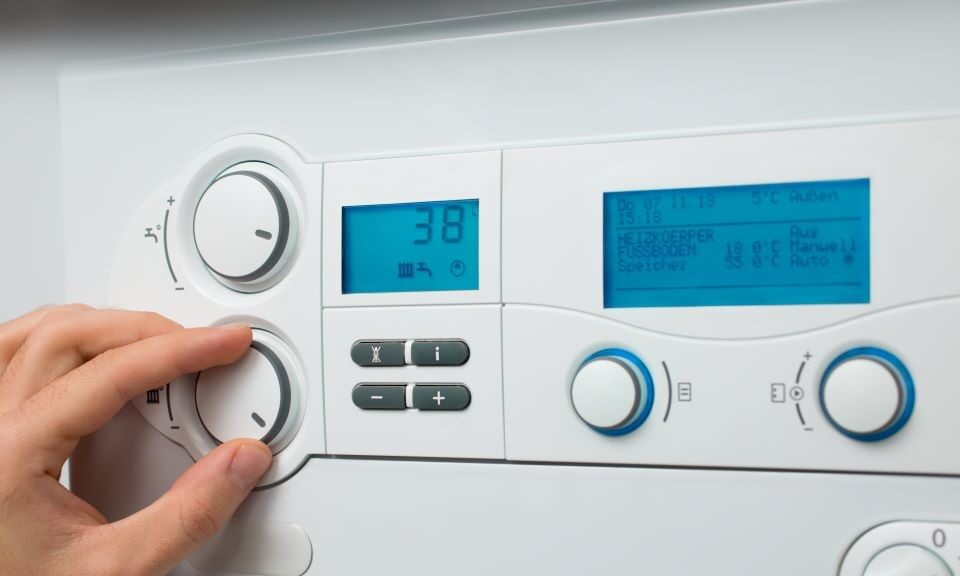
7 Tips to Keep your Boiler Running during a UK Winter

Surviving a Boiler Breakdown
Introduction to ZEB
Boilers are one of the most common sources of heating and hot water in UK homes. However, they also account for a significant amount of our carbon emissions, all of which contribute to climate change. With the recent news about the Tepeo Zero Emission Boiler or “ZEB”, that’s been designed to replace fossil fuel boilers, we thought it would be timely to write up on how Zero Emission Boilers will be the future for the UK.
According to the British government, heating a home and hot water accounts for 15% of the UK’s greenhouse gas emissions and most of this comes from gas boilers.
To tackle this problem, the UK has set a tough target to achieve net zero carbon emissions by 2050. This means that the UK will have to reduce its emissions to as low as possible and offset any remaining emissions by removing them from the atmosphere.
One of the ways to achieve this goal is to replace old gas boilers with zero emission boilers, which do not produce any carbon dioxide or other harmful gases when they operate.
Current “zero emission boilers” are boilers that make use of renewable energy sources, such as electricity, hydrogen, or heat from the ground or air, to provide heating and hot water to people’s homes. They are typically more efficient and cleaner to run than current gas boilers and can help reduce a homeowner’s overall environmental impact.
In this article, we will explore the future benefits and challenges of zero emission boilers for UK homeowners.
Benefits of Current Zero Emission Boilers
There are a few key advantages to installing a zero-emission boiler in your home such as:
Lowering your carbon emissions
By switching to a zero-emission boiler, you can reduce your home’s carbon footprint and help the UK meet its net zero target. For example, a typical gas boiler emits about 2.7 tonnes of carbon dioxide per year whereas an electric boiler emits only 0.9 tonnes of CO2, assuming the electricity used is from renewable sources.
A hydrogen boiler emits no carbon dioxide at all, as it only produces water as a by-product. However at this time there are no plans to roll out these types of boilers in the UK, after a failed trial in the Redcar area.
Reduced energy bills
Zero emission boilers are said to be more efficient than gas boilers, as they use less energy to produce the same amount of heat. For example, an electric boiler has an efficiency of 99%, whereas a gas boiler has an efficiency of just 89% (this, though, is still a very good figure!).
A heat pump can even produce more heat than it consumes, as it transfers heat from a low-temperature source (such as the ground or air) to a high-temperature one (such as your home). This means that you can save money on your energy bills by using less energy to heat your home. However, a heat pump currently is a LOT more expensive to purchase and install than a new boiler.
Increased efficiency
Zero emission boilers can further improve the efficiency of your heating system, as they can work with (just as new electric and gas boilers can) smart thermostats, sensors, and controls to optimize the temperature and timing of your heating and hot water. For example, you can set your boiler to turn on and off automatically based on your schedule, preferences, weather conditions and adjust the temperature remotely using your smartphone or voice assistant. This can help you avoid wasting energy and money by heating your home when you are not there or when you do not need it.
Types of Zero Emission Boilers
There are different types of zero emission boilers such as:
Hydrogen boilers
Hydrogen boilers are boilers that use hydrogen gas as a fuel to produce heat and hot water. Hydrogen is a zero emission fuel, as it only produces water and heat when it burns with no carbon dioxide generated. Hydrogen boilers are similar to gas boilers in terms of size, design, and performance, and can be installed in existing gas networks with minimal modifications. However, hydrogen boilers are not widely available yet as the UK does not have a large-scale hydrogen production and distribution infrastructure. The UK government ran a recent trial but it failed and there are no plans to invest in hydrogen technology for homes.
Electric boilers
Electric boilers are boilers that use electricity as a fuel to produce heat and hot water. Electricity is a zero emission fuel when it is generated from renewable sources, such as wind, solar, or hydro power. Electric boilers are slightly more efficient and quieter than gas boilers, and do not require a flue or gas supply. Electric boilers are easy to install and work with any type of heating system, such as radiators or underfloor heating. However, electric boilers are more expensive to run compared to gas boilers, as electricity is more costly than gas per unit Kw of energy.
Heat pumps
Heat pumps use electricity to transfer heat from a low-temperature ground or air source to a high-temperature one (your home). Heat pumps are not boilers, but they can provide heating and hot water for your home in a similar way. Heat pumps are very efficient, as they can produce more heat than they consume, and have a low carbon footprint, even more so when they use renewable energy sources. However, heat pumps are more expensive to purchase and more complex to install than current home boilers, as they require a large outdoor space, a suitable heating system and an extremely well-insulated home. Heat pumps also have a lower heating capacity than boilers which means that they may not be able to meet the peak demand of your home in very cold Winter weather.
Challenges and Solutions
Switching to a zero-emission boiler can be a challenging and costly process for some homeowners, as there are a few potential barriers and obstacles that they might face, such as:
Availability
Zero emission boilers are not yet widely available in the UK, especially hydrogen boilers, which are still in the development and testing stage. There are also limited options and models of electric boilers and heat pumps, compared to a wider choice of gas boilers, which can make it harder for homeowners to find the best fit for their home and budget. Moreover, there is a current shortage of qualified and experienced boiler installers and engineers who can install and service zero emission boilers, which can lead to delays. If you’re waiting on a boiler engineer then please do get in touch, we can help!
Installation
Low emission boilers can be difficult and disruptive to install, as they may require significant changes and modifications to your home and heating system. For example, you may need to upgrade your electrical wiring, replace your radiators, install a flue or a vent, dig a trench or a borehole as well as apply for planning permission. These changes can take a long time, cause inconvenience and damage your property.
Maintenance
Zero emission boilers can be more expensive and complicated to maintain than conventional gas boilers, as they may require more frequent servicing, repairs, or replacements. For example, electric boilers can be affected by limescale build-up which reduces their efficiency and lifespan. Heat pumps can easily be affected by frost, dirt or leaks which can impair their overall performance.
To overcome these challenges and ensure a smooth and successful transition to a zero emission boiler, you can follow some of these solutions and tips:
Choose a reputable boiler installer
Before you hire an installer or engineer to install your zero emission boiler (or any boiler for that matter), make sure that they are certified, registered, and insured, and that they have a good reputation and track record. You can check their credentials and reviews on websites such as Trustpilot, Checkatrade or Trusted Traders to name but a few. You can also ask for references, quotes, and guarantees, and compare them with other installation providers. We recommend avoiding an installer who offers you a very low price, a very short time frame, or a very high pressure sales pitch, as they may be unreliable or unprofessional.
Apply for grants
To reduce the cost of installing your zero emission boiler, you can apply for various UK grants and schemes. Do note there is far less availability of grants at the moment. Government grants can help you cover some or all of the upfront and ongoing costs of your zero emission boiler, depending on the type and size of the boiler, the energy source, and your eligibility criteria. You can find out more about these grants and how to apply for them on websites such as Gov.uk, Energy Saving Trust or Ofgem.
Follow best practices
To ensure the optimal performance and safety of your zero emission boiler, you should follow some best practices and guidelines, such as:
- Read and follow the manufacturer’s instructions and recommendations for your boiler and keep them handy for future reference.
- Service and maintain your boiler regularly, at least once a year, by a qualified and registered engineer. You can find a list of approved boiler engineers on websites such as Gas Safe Register, HETAS or MCS.
- Check and monitor your boiler’s performance, efficiency, and safety indicators, such as the pressure, temperature, noise, and emissions. If you notice any problems or issues, contact your boiler engineer, do not wait and hope the problem goes away!
- Use your boiler in a smart and efficient way, by setting the right temperature and timing for your heating and hot water, adjusting them according to your needs and preferences. You can also use smart thermostats, sensors, and controls to automate your boiler’s operation.
Conclusion
Yes, zero emission boilers are the future for UK homeowners. They help reduce carbon emissions, save money on energy bills, increase efficiency and permit future government incentives.
The downsides could be that switching to a zero emission boiler could be challenging and certainly more costly. Yet there will be solutions to overcome these barriers and ensure a successful transition. If you are interested in installing a zero emission boiler in your home, we recommend that you contact a boiler installer in Suffolk and Essex or engineer and apply for a grant or scheme that suits your needs and eligibility.





